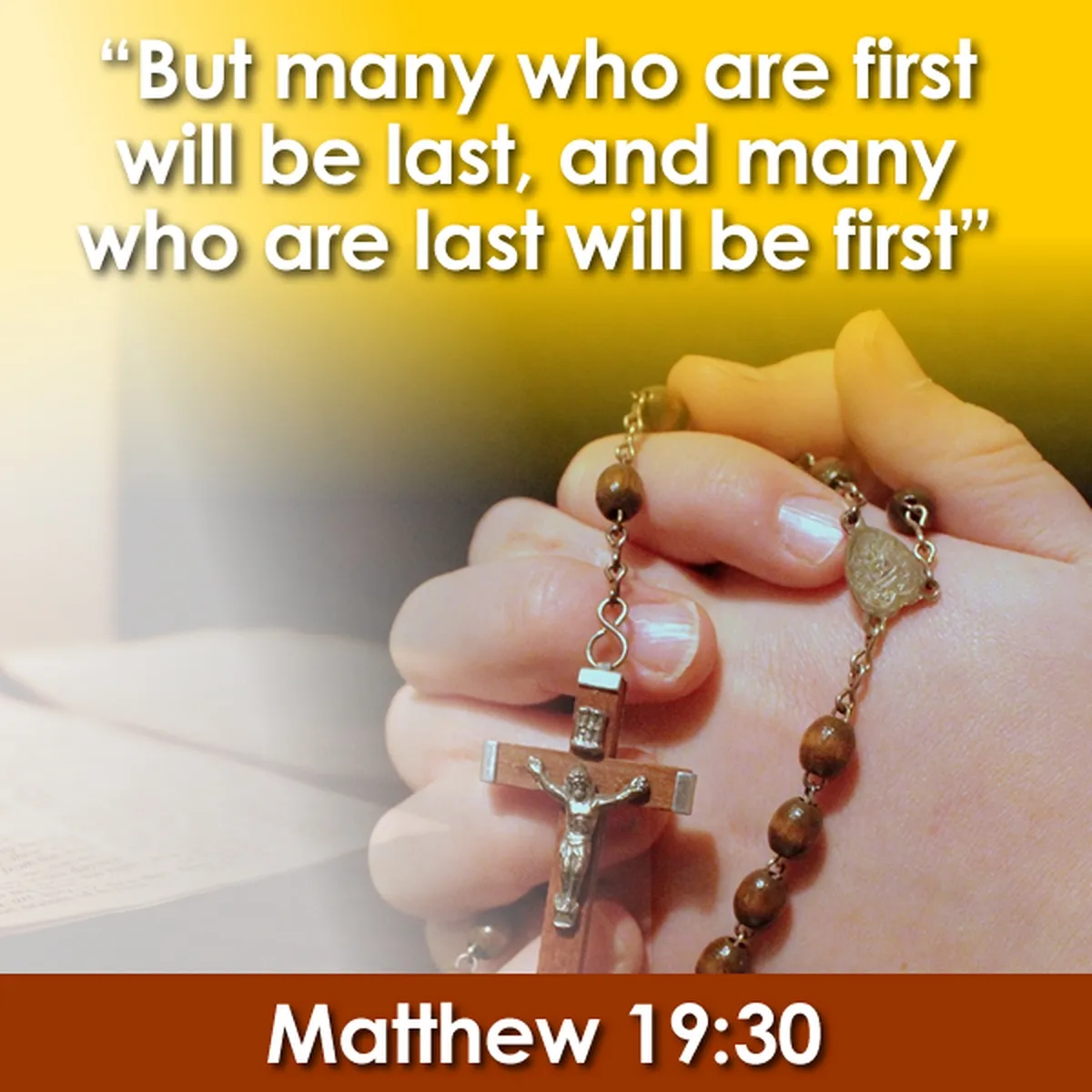Jesus said about the kingdom of God: "But many who are first will be last, and many who are last will be first". This teaching is present in Matthew 19:30, Matthew 20:16, Mark 10:31 and Luke 13:30.
In Mark 10:31 and Matthew 19:30 , the teaching is a conclusion of the dialogue of Jesus with a rich young man:
"Just then a man came up to Jesus and asked, "Teacher, what good thing must I do to get eternal life?"
"Why do you ask me about what is good?" Jesus replied. "There is only one who is good. If you want to enter life, keep the commandments."
"Which ones?" he inquired.
Jesus replied,"You shall not murder, you shall not commit adultery, you shall not steal, you shall not give false testimony, honor your father and mother, and love your neighbor as yourself.
"All these I have kept", the young man said. "What do I still lack?"
Jesus answered, "If you want to be perfect, go, sell your possessions and give to the poor, and you will have a treasure in heaven. Then come, follow me." Matthew 19:16-21...
Then Jesus cloncludes with Matthew 19:30.

Jesus with this teaching is warning us about the logic of trusting only in wealth and to seek always be the first.
The kingdom of God is for those who "edify". The kingdom of God is edify by helping those who cannot repay us for our efforts: the orphans, the widows, the helpless. This is the true meaning of mercy. The kingdom of God judges us by our ranking of mercy: "the last will be first".
We also see this conclusion in the parable of the workers in the vineyard:
"For the kingdom of heaven is like a landowner who went out early in the morning to hire workers for his vineyard. He agreed to pay them a denarius for the day and sent them into his vineyard.
About nine in the morning he went out and saw others standing in the marketplace doing nothing. He told them, 'You also go and work in my vineyard, and I will pay you whatever is right.' So they went.
He went out again about noon and about three in the afternoon and did the same thing. About five in the afternoon he went out and found still others standing around. He asked them, 'Why have you been standing here all day long doing nothing?'
'Because no one has hired us,' they answered.
He said to them, 'You also go and work in my vineyard.'
When evening came, the owner of the vineyard said to his foreman, 'Call the workers and pay them their wages, beginning with the last ones hired and going on to the first.'
The workers who were hired about five in the afternoon came and each received a denarius. So when those came who were hired first, they expected to receive more. But each one of them also received a denarius. When they received it, they began to grumble against the landowner. 'These who were hired last worked only one hour,' they said, 'and you have made them equal to us who have borne the burden of the work and the heat of the day.'
But he answered one of them, 'I am not being unfair to you, friend. Didn't you agree to work for a denarius? Take your pay and go. I want to give the one who was hired last the same as I gave you. Don't I have the right to do what I want with my own money? Or are you envious because I am generous?'
"So the last will be first, and the first will be last." Matthew 20:1-16
The meaning of the parable is this, we all work for the same pay, the eternal life. Some are called before, others after; and for this pay some must try harder and others less, the spiritual gifts are received differently, in some people the spiritual gifts bear fruit easier than in others. The providence of God is merciful, but not proportional.
For more information, visit my profile, follow my link and download for free my ebook.